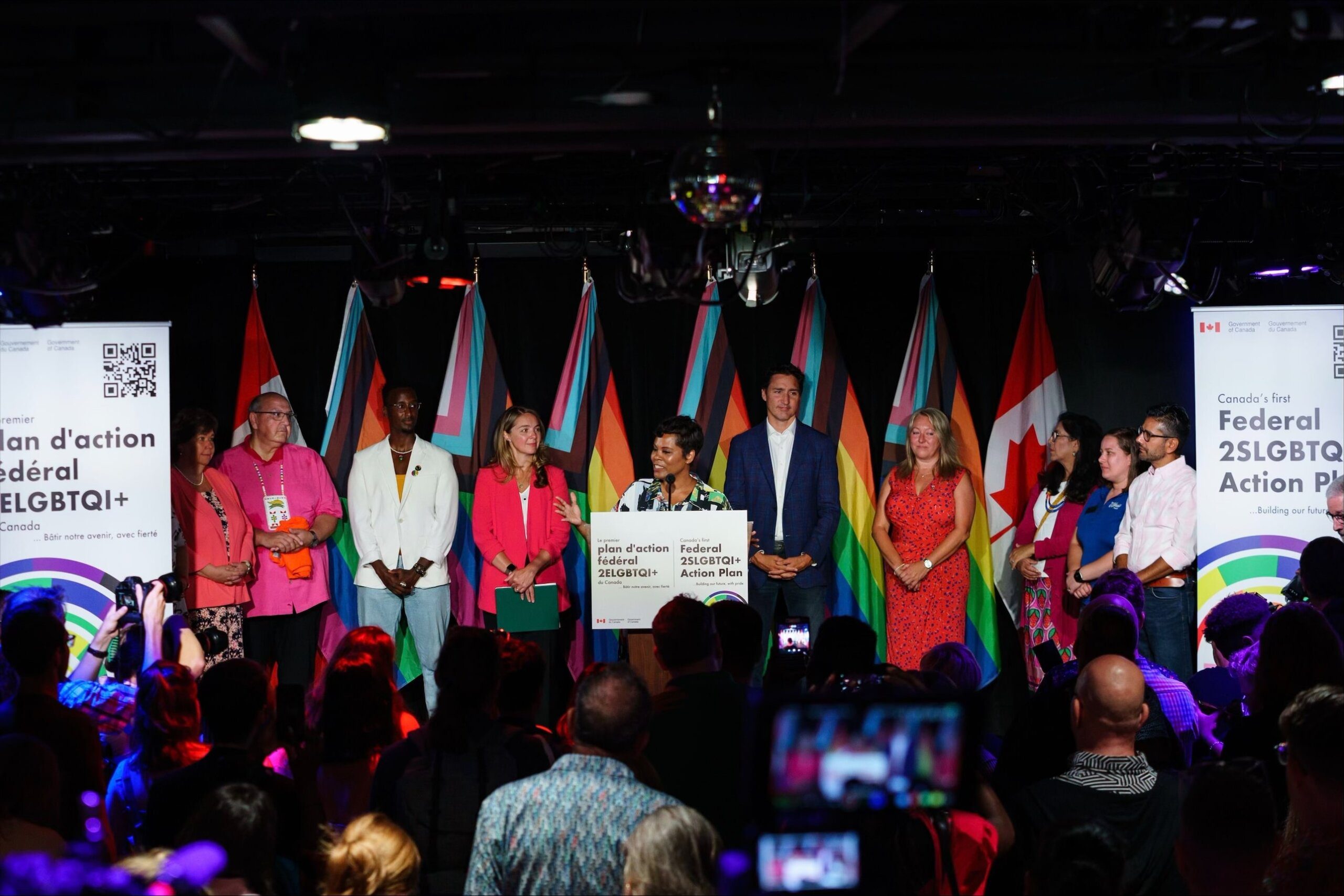Money is now flowing under the nation’s first-ever 2SLGBTQI+ action plan, released with much fanfare by the federal government six months ago.
Canada’s minister for Women and Gender Equality and Youth, Marci Ien, announced March 12 at Toronto’s Glad Day Bookshop that more than $875,000 would be granted between two community organizations—the Alliance for South Asian AIDS Prevention (ASAAP) and Egale Canada Human Rights Trust—for two special projects: targeted supports for racialized trans people and addressing anti-gender hate on post-secondary campuses, respectively.
Funding these types of groups was the headlining pledge of the action plan upon its release in late August 2022. Of the $100 million earmarked for the plan’s implementation, $75 million is planned to go directly to community organizations—a ratio Ien says is intentional.
“We know governments aren’t here forever and it’s my job to make sure that the things we put in place now outlast us and me,” Ien tells Xtra. “If I’m voted out tomorrow, I need to know we’ve made these community organizations stronger.”
While ASAAP and Egale are some of the first grant recipients to be announced under the action plan’s banner, they won’t be the last, Ien says. As part of the March 12 announcement, the government has launched an open call for funding proposals with a deadline of May 9, 2023.
The criteria for funding is purposefully broad. Any LGBTQ2S+ organization can apply for funds to “reach its goals,” spending the money to improve its skills, ability to collaborate or tools. While there’s a deliberate lack of parameters to encourage a range of proposals, Ien says she hopes to see applications from organizations working with young people.
“When it comes to recent transphobic rhetoric or antiqueer hate—I have an 18- and 11-year-old, and they see things very differently,” she says. “Young people are more inclusive, and so organizations that are heralding that—focusing on bringing young people up in an inclusive way that we’ve never seen before—those are the front lines.”
At the announcement, Ien highlighted other steps the government has taken to advance rights and equality for LGBTQ2S+ people in Canada, as well as an online tracker for the plan’s progress. This includes launching a page on the government’s website earlier this year with resources for people concerned they are being or have been taken outside of Canada to undergo conversion practices, as well as a move in early March to add “bawdyhouse” offences to the list of criminal offences eligible for expungement.
These were indecency arrests made at bathhouses, nightclubs and swingers clubs—places where the queer and trans community historically turned to for community and safety. By making these former crimes eligible for expungement, victims of bathhouse and other police raids can take action to clear their criminal records. Yet for some community advocates, these steps hardly warrant applause.
“It feels like this action plan is taking credit for things that were already well underway,” says Michael Kwag, the policy and knowledge exchange director at the Community-Based Research Centre, a national hub for queer and trans health research and advocacy.
Kwag and others were hopeful that the action plan’s extensive consultation process—one that spanned months and garnered more than 25,000 survey responses, 100 written submissions and a dozen roundtables with over 100 stakeholders—would lead to a comprehensive, whole-of-government response on LGBTQ2S+ issues. Now, six months into the plan, there isn’t much more than a bucket of available money.
“Choosing to not include any concrete policy goals in some of the major areas like health gives the impression that they don’t know what they want to commit to,” says Kwag, citing continued silence on priorities like access to gender-affirming care. “And if they’re not sure of that even after all of the input they’ve received and data they have to work with, then they’ve consciously chosen to step back and not be more aggressive.”
When pressed on the lack of specific outcomes and policy goals, Ien says the plan is meant to be evergreen—with new priorities added as time goes on. “I consider myself a forever learner. I want to hear from everybody, and then fill in the gaps.” But for Kwag, that response just doesn’t cut it.
“Of course the action plan should be responsive to new knowledge and discoveries, but recognizing how thorough and comprehensive the consultation process was, the feeling is that there was a real missed opportunity to include a more ambitious set of targets and policy goals.”


 Why you can trust Xtra
Why you can trust Xtra


